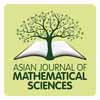A Monte Carlo Study of Empirical Performance of Threshold Autoregressive Models on Nonlinear Non-Stationary
Main Article Content
Abstract
One of the major importance of modeling in time series is to forecast future values of that series which requires the use of appropriate method to fit the time series data that are dependent on the nature of the data. However, real-life data are mostly non-stationary and nonlinear. This will be a problem when a model is in appropriately applied to data that does not fits in, the result of the outcome will be inaccurate and this will not give the clear picture of what the data entails in the future events. In this study, the performances of the smooth transition autoregressive (STAR) and the self-exciting threshold autoregressive (SETAR) models of different orders and regimens were compared on different forms of nonlinear cases of autoregressive under violation of stationarity assumption. Simulated data with features of nonlinearity and non-stationarity were used to compare the performance of the models. The relative performances of the models were examined with a view to identify the best models at orders 1, 2, and 3, and regimen 2 when fitted to linear, trigonometric, exponential, and polynomial autoregressive functions. It was concluded that the SETAR (2, 1) is the best model followed by SETAR (2, 2) to fit linear data, whereas the SETAR (2, 2) and STAR (2, 3) are considered to be the best for an exponential and SETAR (2, 2) and STAR (2, 2) for a polynomial data.
Article Details

This work is licensed under a Creative Commons Attribution-NonCommercial 4.0 International License.
This is an Open Access article distributed under the terms of the Attribution-Noncommercial 4.0 International License [CC BY-NC 4.0], which requires that reusers give credit to the creator. It allows reusers to distribute, remix, adapt, and build upon the material in any medium or format, for noncommercial purposes only.
